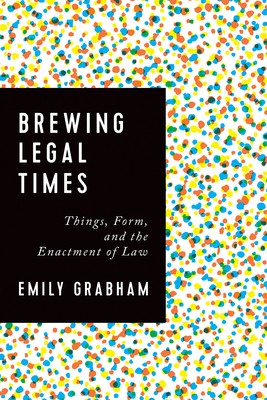
- We will send in 10–14 business days.
- Author: Emily Grabham
- Publisher: University of Toronto Press
- ISBN-10: 1442646055
- ISBN-13: 9781442646056
- Format: 16 x 23.1 x 1.8 cm, hardcover
- Language: English
- SAVE -10% with code: EXTRA
Reviews
Description
Much socio-legal scholarship assumes that even if experiences of law and time differ, people and laws exist within an overarching, shared timeframe. In Brewing Legal Times, Emily Grabham boldly departs from this assumption, drawing on perspectives from actor-network theory, feminist theory, and legal anthropology to advance our understanding of law and time.
Grabham argues that human, material, and legal relationships constantly generate new temporalities because of human and nonhuman interactions. By engaging with the creative potential of "things" such as cells, viruses, reports, legal documents, and more, our understanding of law and time is subject to change. In challenging the scholarship on the materiality of time and law, Brewing Legal Times encourages us to confront the multiple and mundane ways in which time is enacted through legal networks.
EXTRA 10 % discount with code: EXTRA
The promotion ends in 17d.23:29:54
The discount code is valid when purchasing from 10 €. Discounts do not stack.
- Author: Emily Grabham
- Publisher: University of Toronto Press
- ISBN-10: 1442646055
- ISBN-13: 9781442646056
- Format: 16 x 23.1 x 1.8 cm, hardcover
- Language: English English
Much socio-legal scholarship assumes that even if experiences of law and time differ, people and laws exist within an overarching, shared timeframe. In Brewing Legal Times, Emily Grabham boldly departs from this assumption, drawing on perspectives from actor-network theory, feminist theory, and legal anthropology to advance our understanding of law and time.
Grabham argues that human, material, and legal relationships constantly generate new temporalities because of human and nonhuman interactions. By engaging with the creative potential of "things" such as cells, viruses, reports, legal documents, and more, our understanding of law and time is subject to change. In challenging the scholarship on the materiality of time and law, Brewing Legal Times encourages us to confront the multiple and mundane ways in which time is enacted through legal networks.


Reviews